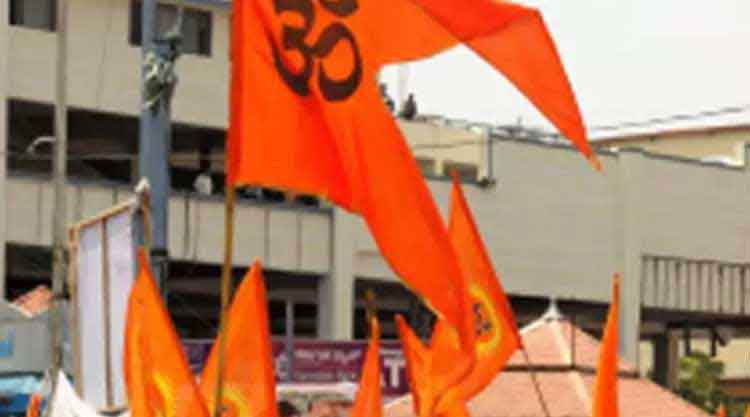The National Council of Educational Research and Training (NCERT), which has removed unannounced from a school textbook content on the RSS ban that followed Mahatma Gandhi’s assassination, has defended itself saying minor deletions do not need to be notified.
An academic who did not wish to be quoted described the removals — some text on Gandhi’s assassin Nathuram Godse has been dropped quietly too — as “surreptitious”.
The NCERT had last year carried out a “rationalisation” of the school syllabus, ostensibly to lighten the load on students following the disruptions to schooling caused by the pandemic.
When the new books were released last July, the NCERT uploaded a booklet on its website giving details of the book-wise and page-wise changes. But the RSS and Godse omissions were not mentioned.
The part on the RSS ban used to come under the subhead “Mahatma Gandhi’s Sacrifice” in the chapter “Challenges of Nation Building” in the book Politics in India Since Independence, the political science textbook for Class XII students.
The portion that was deleted read: “He was particularly disliked by those who wanted Hindus to take revenge or who wanted India to become a country for the Hindus, just as Pakistan was for Muslims. They accused Gandhiji of acting in the interest of Muslims and Pakistan. Gandhiji thought that these people were misguided. He was convinced that any attempt to make India into a country only for the Hindus would destroy India. His steadfast pursuit of Hindu-Muslim unity provoked Hindu extremists so much that they made several attempts to assassinate Gandhiji.
“Gandhiji’s death had an almost magical effect on the communal situation in the country. Partition-related anger and violence suddenly subsided. The Government of India cracked down on organisations that were spreading communal hatred. Organisations like Rashtriya Swayamsevak Sangh were banned for some time. Communal politics began to lose its appeal.”
A part of a sentence, which said Gandhi “refused to accept armed protection”, too was missing from the revised textbook.
In the Class XII history book, Themes in Indian History — Part III, the chapter on “Mahatma Gandhi and the Nationalist Movement” used to refer to Godse as a “Brahmin from Pune” and “the editor of an extremist Hindunewspaper who had denounced Gandhiji as an appeaser of Muslims”. These phrases have been removed without mention in the booklet.
The NCERT’s defence comes in the form of a “Brief for Press Release” on “Rationalisation of NCERT Textbooks”, uploaded on its website. It states that certain changes were made during the reprinting of the textbooks that were not notified.
“Details of Rationalisation for each book was also uploaded on the website alongwith textbook in pdf form while the rationalised textbooks were in printing. However, it may be noted that reprinting of textbooks taking care of suggestions of stakeholders is a regular process which takes place every year. In view of avoiding any confusion at the level of teachers and students, minor deletion or addition if any, are not notified,” it says.
It does not explain why notifying changes, rather than not notifying them, would confuse teachers and students.
“In the context of rationalisation exercise also some minor deletions (a sentence or a word or a phrase, etc) were done, which were not included in the details of the notification of the rationalisation, as this was under the regular process of reprinting of textbooks,” the “Brief for Press Release” says.
The deleted portion on Gandhi’s assassination and the RSS ban contained 10 sentences and 136 words.
“Therefore, NCERT firmly stands on its version that nothing has been removed or deleted after rationalisation undertaken in academic session 2022-2023,” the “Brief for Press Release” says.
The academic who spoke anonymously to this newspaper said the NCERT ought to have notified every change so that the children and their parents were well-informed about the rationalisation exercise.
“The NCERT must notify every change being made, give details of the process, including the experts involved and the consultations made, and the justifications for each change. If changes are done in a surreptitious manner, it will normalise arbitrary changes,” he said.
When cartoons were dropped from a Class XII textbook in 2012, the NCERT had notified all of them.
The charges of “arbitrary changes” gain credence from the NCERT’s failure to consult the authors of the original textbooks, as several of the authors have confirmed.
An email and a text message sent to NCERT director Dinesh Prasad Saklani, seeking his perspectives on the unannounced deletions, have remained unanswered.
State textbooks
The National Commission for the Protection of Child Rights (NCPCR), the monitoring authority for the implementation of the Right To Education Act, has asked all the states to direct schools to follow the textbooks prescribed by their State Council of Educational Research and Training, and not private publishers’ books.
Many private schools affiliated to state boards prescribe private publishers’ books, which are costly, till Class VIII.
“If any school forces students or parents to buy private publishers’ books, action can be taken under the Juvenile Justice Act. Police complaints can be filed against the school,” NCPCR chairperson Priyank Kanoongo told The Telegraph.












